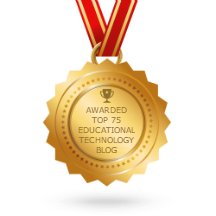A new issue alert that may be of interest.
You have a new notification from Journal of Open, Flexible and Distance Learning:
An issue has been published.
Link: https://www.jofdl.nz/index.php/JOFDL/issue/current
Alison Fields
The table of contents read:
Vol. 27 No. 1 (2023): Journal of Open, Flexible and Distance Learning
General Issue
Published: 2023-09-17Editorial
The Continued Importance of Open Educational Resources (OER)
Invited Articles
OER-based Online Micro-coursesSupporting UNESCO Strategic Development Goal 4: Education for All
Articles – Primary studies
Modeling of Distance Learners’ Retention Using Mixed-Model on Non-Proportional Hazard
Adult Students’ Perceptions of a Synchronous Distance Education Teacher Training Programme Using Microsoft Teams
Articles – Descriptive pieces
Transforming Learning Support in ODFL: The LESS model
Raising Learner Satisfaction in Online Computer Programming and Information Technology Courses: One Instructor’s Five Successful Strategies






 12 Unique Blogs Are Written By Professors
12 Unique Blogs Are Written By Professors